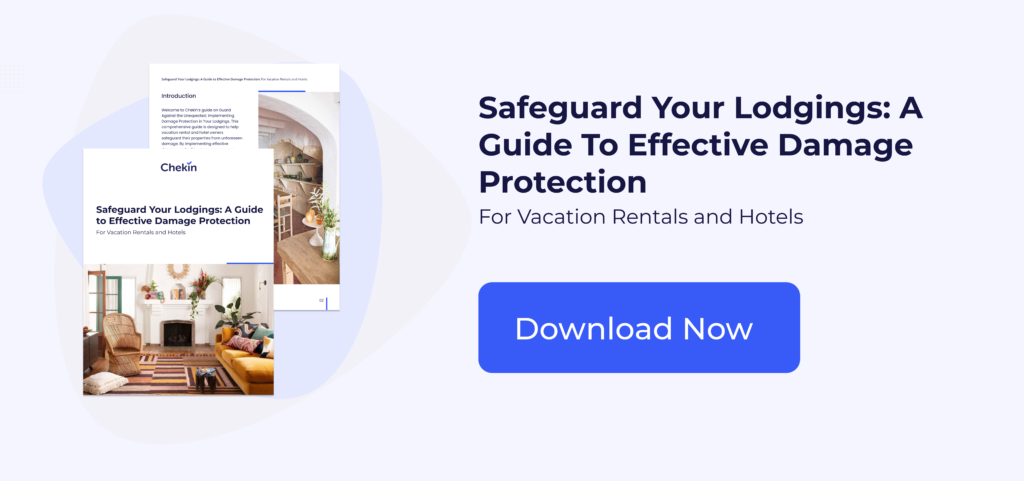Online payments and chargeback protection for your property
If you are a property owner we know that you may be concerned about bookings payments management as well as issues concerning fraudulent chargebacks.
It is important to bear in mind that a fraudulent transaction can cause a chargeback and that being unprotected in these matters can result in even greater problems such as loss of revenue.
On the other hand, from the bookings payments management comes the concern about increasing commissions being collected by OTAs. A situation that reduces the profit margin of the owners of tourist accommodation for each booking.
We bring you this blog with the aim of providing a solution to the main problems arising from the management of booking payments and chargeback protection. Therefore, we invite you to read on and discover how to manage these aspects in your business in a profitable and safe way.
How to manage your bookings payments while keeping your commissions as low as possible?
Your guests can help you save hundreds of hours in managing payments. You can do this by automating the entire check-in process, which includes allowing your guests to make all booking payments online: booking payment, tourist tax payment, deposit, etc.
This will allow you to collect payments derived from the booking in a fast, convenient and 100% secure way.
In addition, you can forget about those abusive commissions established by the different OTAs that you have to deal with. Here you have the solution to manage online payments with competitive commissions.
Finally, we should consider that at any time guests may request an invoice for their booking. In this case, as the property owner, you will have to be prepared to provide them with such a document containing all the information required in a holiday rental invoice.
Don’t know what this invoice should include? Don’t worry, below you will find a holiday rental invoice template.

What is a chargeback and how to be protected against them?
We said that a fraudulent transaction could cause a chargeback and being unprotected in these matters could cause you to lose money.
Probably you are still wondering what the chargeback meaning is. Well, a chargeback occurs exactly when the cardholder makes a request to reverse the transaction, as they do not recognise it.
Therefore, one way to protect yourself from fraud-related chargeback transactions is 3D secure authentication.
This works in such a way that payments that have been successfully authenticated using 3D secure authentication are covered by a liability shift.
We explain how you are protected by presenting different scenarios:
- If the cardholder used 3D authentication, it means that you are not liable for chargebacks.
- If the cardholder says they did not use the card to make a purchase. The card issuing bank is responsible for Maestro, MasterCard and Visa chargebacks.
Additional tips to prevent chargebacks at your business
You’re probably wondering what other factors can help to prevent chargebacks from people staying at your property. In addition to 3D secure authentication, here are 7 other tips to follow:
- Consider that chargebacks may be increased when in the billing descriptor your legal name differs from your business name (or brand name) . Therefore, we recommend that you use a billing descriptor with your commercially recognisable name.
- You can significantly reduce chargebacks by clearly outlining all billing, cancellation and refund policies on your website and booking pages. Avoid surprises for your customers!
- Informing your guests and managing their expectations before charging their cards can help you to avoid chargebacks. If they are not informed of a charge before their stay, they can mark it as a “non-receipt of merchandise/service”.
- You can bill guests for additional charges discovered after check-out. For example: Restocking of the refrigerator or damage to the room. In this regard, to avoid problems with chargebacks, it is very important that you clearly communicate your policies on late transactions. We also recommend that after check-out you send the guest the sales receipt of the transaction and a detailed explanation of the additional charge.
- Put your efforts into providing good customer service: Answer their queries as soon as possible, provide a contact phone number, etc. The key is to let your customers know that you are there to answer their concerns!
- There is a way to verify or confirm that the cardholder’s mailing address is the same as the billing address on the credit card ( essential to reduce fraudulent chargebacks). This service is known as address verification service (AVS).
- Consider refunds when resolving guest complaints. These are simpler to manage as well as less costly than chargebacks.






